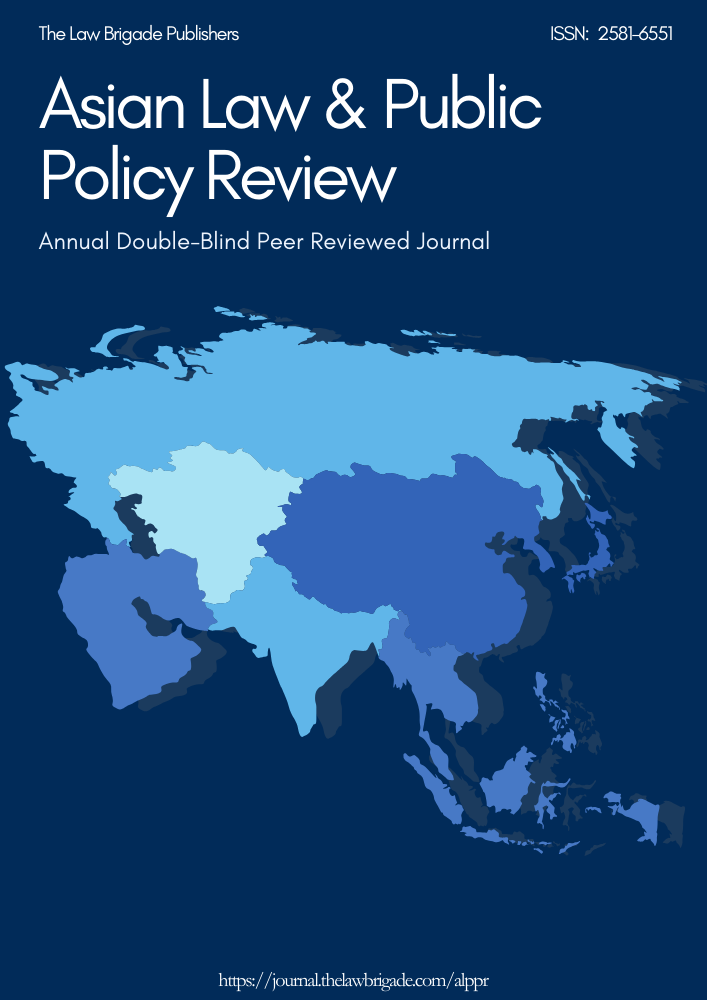Uniform Civil Code: Dream of Every Indian
Keywords:
Uniform Civil Code, Hindu Succession Act, Hindu Guardianship Act, Hindu Marriage Act, Hindu Adoption and Maintenance ActAbstract
At times, in India the question of relevancy of the Uniform Civil Code has been raised. The demand was made by the opponents to bring all personal law within the reform process. The question of Uniform Civil Code became topic of discussion in 1970 when attempts were made to introduce an Indian Adoption Bill on secular lines. The Judicial pronouncements have brought the question of Uniform Civil Code to the fore. In the light of these developments the questions arise, why Uniform Civil Code is relevant? Is there immediate need of it? Whether incorporation of Uniform Civil Code in Article 44 of Constitution was itself a mistake? Uniform Civil Code has been regarded as an important means to achieve constitutional objectives but, at the same time there have been some genuine and practical problems for its adoption. There has been apprehension, confusion, fear and distrust within the community and between the communities. With the passing of each year the problem to enact a Uniform Civil Code is becoming more difficult in comparison to 1950s. Now, the Indian society is less prepared to sacrifice their vested interests which are necessary condition for adoption of Uniform Civil Code. In order to remove the fear and distrust relating to Uniform Civil Code, there is a great need to educate the people. The right thinking people in general and academics in particular have constitutional duty to educate the public opinion for adopting Uniform Civil Code in India.
Downloads
Downloads
Published
Issue
Section
License

This work is licensed under a Creative Commons Attribution-NonCommercial-ShareAlike 4.0 International License.
License Terms
Ownership and Licensing:
Authors of research papers submitted to any journal published by The Law Brigade Publishers retain the copyright of their work while granting the journal specific rights. Authors maintain ownership of the copyright and grant the journal the right of first publication. Simultaneously, authors agree to license their research papers under the Creative Commons Attribution-ShareAlike 4.0 International (CC BY-SA 4.0) License.
License Permissions:
Under the CC BY-SA 4.0 License, others are permitted to share and adapt the work, even for commercial purposes, provided that appropriate attribution is given to the authors, and acknowledgment is made of the initial publication by The Law Brigade Publishers. This license encourages the broad dissemination and reuse of research papers while ensuring that the original work is properly credited.
Additional Distribution Arrangements:
Authors are free to enter into separate, non-exclusive contractual arrangements for distributing the published version of the work (e.g., posting it to institutional repositories or publishing it in books), provided that the original publication by The Law Brigade Publishers is acknowledged.
Online Posting:
Authors are encouraged to share their work online (e.g., in institutional repositories or on personal websites) both prior to submission and after publication. This practice can facilitate productive exchanges and increase the visibility and citation of the work.
Responsibility and Liability:
Authors are responsible for ensuring that their submitted research papers do not infringe on the copyright, privacy, or other rights of third parties. The Law Brigade Publishers disclaims any liability for any copyright infringement or violation of third-party rights within the submitted research papers.


